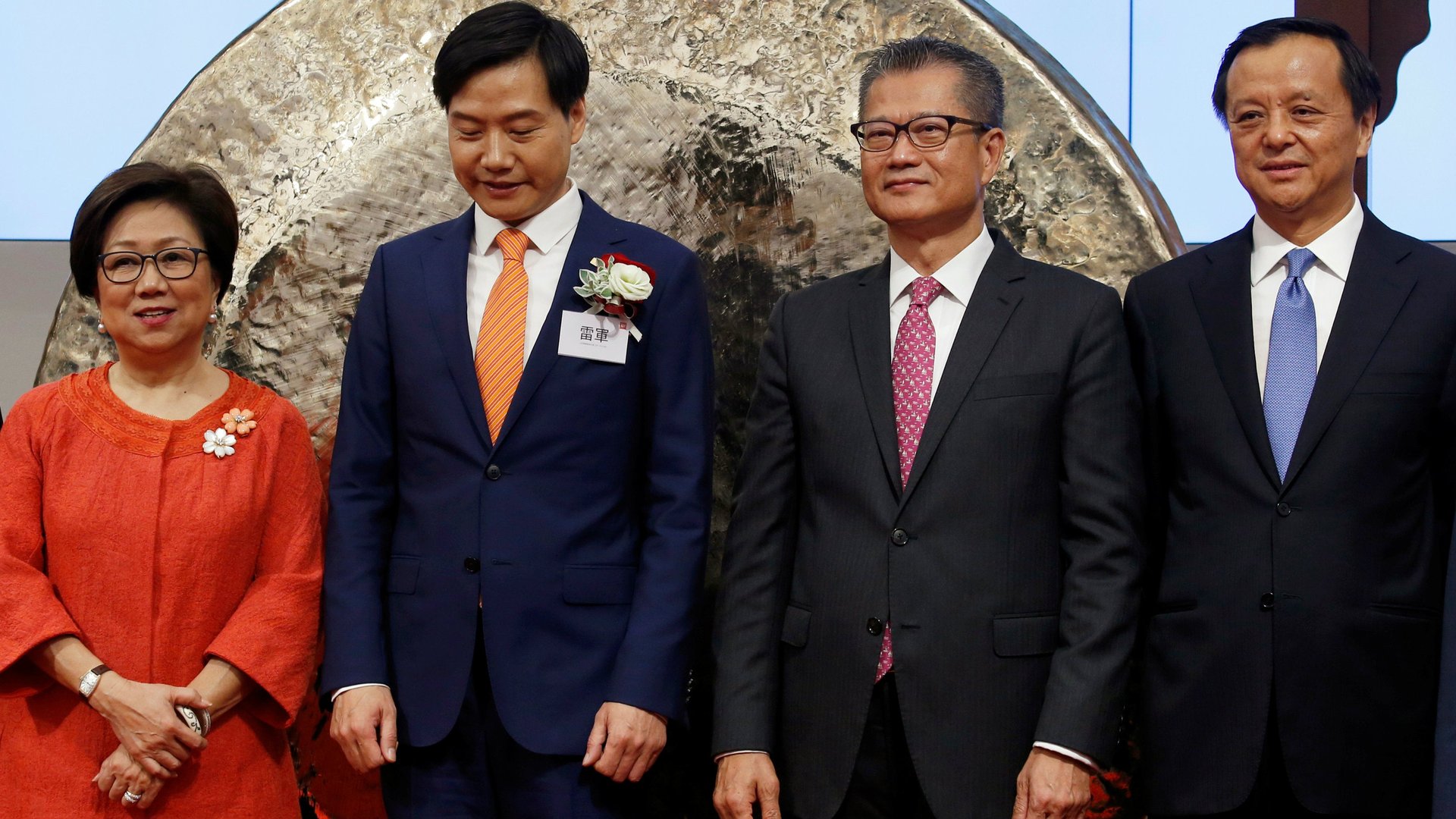Investors in Hong Kong are not buying Xiaomi’s description of itself—or its stock
Chinese smartphone maker Xiaomi debuted on the Hong Kong Stock Exchange today (July 9)—closing the day at HK$16.80 (US$2.14), giving it a market capitalization of about US$50 billion.


Chinese smartphone maker Xiaomi debuted on the Hong Kong Stock Exchange today (July 9)—closing the day at HK$16.80 (US$2.14), giving it a market capitalization of about US$50 billion.
That’s half the valuation of $100 billion that was hoped for when the listing was announced earlier this year.
The stock opened at HK$16.60 Monday, dipping as low as nearly 6% at one point, before closing up 1.2%. That was still lower than the HK$17 (pdf, p. 2) the public offer was priced at prior to listing, marking a lukewarm reception for the stock, given the price was already set at the low end of the initial offer price range. The company raised HK$36 million (about US$4.7 billion) from institutional investors.
What accounts for the listing’s tepid response? One read is that retail investors didn’t buy Xiaomi’s pre-IPO narrative any more than early subscribers did.
In the run-up to the IPO, found Lei Jun described the company’s business model as a “new species” and a “triathlon model” with three components—smartphone sales, third-party hardware sales, and “internet service” sales, namely ads and media. While smartphones drive most of the revenue, the company hopes that internet services will eventually drive most of the profit (currently at about 40%).
It’s an unprecedented structure with many uncertainties. The Android smartphone business is notoriously unstable and has turned giants like Sony, HTC, and Nokia into casualties. Meanwhile, there has never been a tech company to successfully sell undifferentiated, commodity hardware as a means to boost an internet business unit—which might account for investor skepticism.
“I think it is hard for investors to buy the valuation. The company has to transform to justify the valuation and there is too much uncertainty about whether it can do that,” says Paul Gillis, who teaches accounting at Peking University in Beijing.
Xiaomi was also possibly hampered by the broader market—a handful of listings of Chinese tech stocks in the last 12 months have not met with much enthusiasm from investors in general. Many of the major companies that have gone public in 2017 and 2018 have endured tanking share prices. To make matters worse for Xiaomi, the US and China trade war got under way for real just days ahead of its debut.